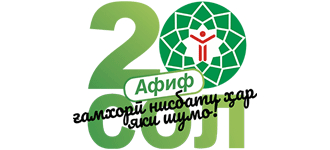Coronavirus disease (COVID-19)
Coronavirus disease (COVID-19)
COVID-19 is the disease caused by a new coronavirus called SARS-CoV-2. WHO first learned of this new virus on 31 December 2019, following a report of a cluster of cases of ‘viral pneumonia’ in Wuhan, People’s Republic of China.
What are the symptoms of COVID-19?
The most common symptoms of COVID-19 are
- Fever
- Dry cough
- Fatigue
Other symptoms that are less common and may affect some patients include:
- Loss of taste or smell,
- Nasal congestion,
- Conjunctivitis (also known as red eyes)
- Sore throat,
- Headache,
- Muscle or joint pain,
- Different types of skin rash,
- Nausea or vomiting,
- Diarrhea,
- Chills or dizziness.
Symptoms of severe COVID‐19 disease include:
- Shortness of breath,
- Loss of appetite,
- Confusion,
- Persistent pain or pressure in the chest,
- High temperature (above 38 °C).
Other less common symptoms are:
- Irritability,
- Confusion,
- Reduced consciousness (sometimes associated with seizures),
- Anxiety,
- Depression,
- Sleep disorders,
- More severe and rare neurological complications such as strokes, brain inflammation, delirium and nerve damage.
People of all ages who experience fever and/or cough associated with difficulty breathing or shortness of breath, chest pain or pressure, or loss of speech or movement should seek medical care immediately. If possible, call your health care provider, hotline or health facility first, so you can be directed to the right clinic.
What happens to people who get COVID-19?
Among those who develop symptoms, most (about 80%) recover from the disease without needing hospital treatment. About 15% become seriously ill and require oxygen and 5% become critically ill and need intensive care.
Complications leading to death may include respiratory failure, acute respiratory distress syndrome (ARDS), sepsis and septic shock, thromboembolism, and/or multiorgan failure, including injury of the heart, liver or kidneys.
In rare situations, children can develop a severe inflammatory syndrome a few weeks after infection.
Who is most at risk of severe illness from COVID-19?
People aged 60 years and over, and those with underlying medical problems like high blood pressure, heart and lung problems, diabetes, obesity or cancer, are at higher risk of developing serious illness.
However, anyone can get sick with COVID-19 and become seriously ill or die at any age.
Some people who have had COVID-19, whether they have needed hospitalization or not, continue to experience symptoms, including fatigue, respiratory and neurological symptoms.
WHO is working with our Global Technical Network for Clinical Management of COVID-19, researchers and patient groups around the world to design and carry out studies of patients beyond the initial acute course of illness to understand the proportion of patients who have long term effects, how long they persist, and why they occur. These studies will be used to develop further guidance for patient care.
How can we protect others and ourselves if we don't know who is infected?
Stay safe by taking some simple precautions, such as physical distancing, wearing a mask, especially when distancing cannot be maintained, keeping rooms well ventilated, avoiding crowds and close contact, regularly cleaning your hands, and coughing into a bent elbow or tissue. Check local advice where you live and work. Do it all!
Read our public advice page for more information.
When should I get a test for COVID-19?
Anyone with symptoms should be tested, wherever possible. People who do not have symptoms but have had close contact with someone who is, or may be, infected may also consider testing – contact your local health guidelines and follow their guidance.
While a person is waiting for test results, they should remain isolated from others. Where testing capacity is limited, tests should first be done for those at higher risk of infection, such as health workers, and those at higher risk of severe illness such as older people, especially those living in seniors’ residences or long-term care facilities.
What test should I get to see if I have COVID-19?
In most situations, a molecular test is used to detect SARS-CoV-2 and confirm infection. Polymerase chain reaction (PCR) is the most commonly used molecular test. Samples are collected from the nose and/or throat with a swab. Molecular tests detect virus in the sample by amplifying viral genetic material to detectable levels. For this reason, a molecular test is used to confirm an active infection, usually within a few days of exposure and around the time that symptoms may begin.
I want to find out if I had COVID-19 in the past, what test could I take?
Antibody tests can tell us whether someone has had an infection in the past, even if they have not had symptoms. Also known as serological tests and usually done on a blood sample, these tests detect antibodies produced in response to an infection. In most people, antibodies start to develop after days to weeks and can indicate if a person has had past infection. Antibody tests cannot be used to diagnose COVID-19 in the early stages of infection or disease but can indicate whether or not someone has had the disease in the past.
What is the difference between isolation and quarantine?
Both isolation and quarantine are methods of preventing the spread of COVID-19.
Quarantine is used for anyone who is a contact of someone infected with the SARS-CoV-2 virus, which causes COVID-19, whether the infected person has symptoms or not. Quarantine means that you remain separated from others because you have been exposed to the virus and you may be infected and can take place in a designated facility or at home. For COVID-19, this means staying in the facility or at home for 14 days.
Isolation is used for people with COVID-19 symptoms or who have tested positive for the virus. Being in isolation means being separated from other people, ideally in a medically facility where you can receive clinical care. If isolation in a medical facility is not possible and you are not in a high risk group of developing severe disease, isolation can take place at home. If you have symptoms, you should remain in isolation for at least 10 days plus an additional 3 days without symptoms. If you are infected and do not develop symptoms, you should remain in isolation for 10 days from the time you test positive.
What should I do if I have been exposed to someone who has COVID-19?
If you have been exposed to someone with COVID-19, you may become infected, even if you feel well.
After exposure to someone who has COVID-19, do the following:
- Call your health care provider or COVID-19 hotline to find out where and when to get a test.
- Cooperate with contact-tracing procedures to stop the spread of the virus.
- If testing is not available, stay home and away from others for 14 days.
- While you are in quarantine, do not go to work, to school or to public places. Ask someone to bring you supplies.
- Keep at least a 1-metre distance from others, even from your family members.
- Wear a medical mask to protect others, including if/when you need to seek medical care.
- Clean your hands frequently.
- Stay in a separate room from other family members, and if not possible, wear a medical mask.
- Keep the room well-ventilated.
- If you share a room, place beds at least 1 metre apart.
- Monitor yourself for any symptoms for 14 days.
- Stay positive by keeping in touch with loved ones by phone or online, and by exercising at home.
If you live in an area with malaria or dengue fever, seek medical help if you have a fever. While travelling to and from the health facility and during medical care, wear a mask, keep at least a 1-metre distance from other people and avoid touching surfaces with your hands. This applies to adults and children. Read our malaria and COVID-19 Q&A for more information
How long does it take to develop symptoms?
The time from exposure to COVID-19 to the moment when symptoms begin is, on average, 5-6 days and can range from 1-14 days. This is why people who have been exposed to the virus are advised to remain at home and stay away from others, for 14 days, in order to prevent the spread of the virus, especially where testing is not easily available.
What should I do if I have COVID-19 symptoms?
If you have any symptoms suggestive of COVID-19, call your health care provider or COVID-19 hotline for instructions and find out when and where to get a test, stay at home for 14 days away from others and monitor your health.
If you have shortness of breath or pain or pressure in the chest, seek medical attention at a health facility immediately. Call your health care provider or hotline in advance for direction to the right health facility.
If you live in an area with malaria or dengue fever, seek medical care if you have a fever.
If local guidance recommends visiting a medical centre for testing, assessment or isolation, wear a medical mask while travelling to and from the facility and during medical care. Also keep at least a 1-metre distance from other people and avoid touching surfaces with your hands. This applies to adults and children.
Are there treatments for COVID-19?
Scientists around the world are working to find and develop treatments for COVID-19.
Optimal supportive care includes oxygen for severely ill patients and those who are at risk for severe disease and more advanced respiratory support such as ventilation for patients who are critically ill.
Dexamethasone is a corticosteroid that can help reduce the length of time on a ventilator and save lives of patients with severe and critical illness. Read our dexamethasone Q&A for more information.
Results from the WHO’s Solidarity Trial indicated that remdesivir, hydroxychloroquine, lopinavir/ritonavir and interferon regimens appear to have little or no effect on 28-day mortality or the in-hospital course of COVID-19 among hospitalized patients.
Hydroxychloroquine has not been shown to offer any benefit for treatment of COVID-19. Read our hydroxychloroquine Q&A for more information.
WHO does not recommend self-medication with any medicines, including antibiotics, as a prevention or cure for COVID-19. WHO is coordinating efforts to develop treatments for COVID-19 and will continue to provide new information as it becomes available.
Are antibiotics effective in preventing or treating COVID-19?
Antibiotics do not work against viruses; they only work on bacterial infections. COVID-19 is caused by a virus, so antibiotics do not work. Antibiotics should not be used as a means of prevention or treatment of COVID-19.
In hospitals, physicians will sometimes use antibiotics to prevent or treat secondary bacterial infections which can be a complication of COVID-19 in severely ill patients. They should only be used as directed by a physician to treat a bacterial infection.
The information source is: https://www.who.int
For more information please go to: https://www.who.int/emergencies/diseases/novel-coronavirus-2019/question-and-answers-hub/q-a-detail/coronavirus-disease-covid-19
Questions and answers
- Friday, 17 March 2023Hi. Can I get HIV if dry blood on pants touches genitals? Will it have any microtrauma on genitals? Also, pants were in a drawer for two days, does HIV ....
- Friday, 10 March 2023Hi. Can I get HIV from dried blood? I went to the lab for blood checking and the lady drew my blood and accidently scratched the plastic tray before taking ....
- Saturday, 25 February 2023Hi. It’s me again. If that HIV blood on pants was 3 days old, could it still be alive when it comes in contact with genitals?
- Wednesday, 22 February 2023Hi. Why is it impossible to get HIV if dried blood on pants gets in contact with genitals?
- Wednesday, 15 February 2023Hi. Can I get HIV if blood stained on pants touches genitals?
- Friday, 17 March 2023Hi. Can I get HIV if dry blood on pants touches genitals? Will it have any microtrauma on genitals? Also, pants were in a drawer for two days, does HIV ....
- Friday, 10 March 2023Hi. Can I get HIV from dried blood? I went to the lab for blood checking and the lady drew my blood and accidently scratched the plastic tray before taking ....
- Saturday, 25 February 2023Hi. It’s me again. If that HIV blood on pants was 3 days old, could it still be alive when it comes in contact with genitals?
- Wednesday, 22 February 2023Hi. Why is it impossible to get HIV if dried blood on pants gets in contact with genitals?
- Wednesday, 15 February 2023Hi. Can I get HIV if blood stained on pants touches genitals?
- Archive
- Monday, 28 December 2020Hello. I feel chest pain, but there is no cough or fever. But there is phlegm and a little red color. Is this a symptom of tuberculosis?
- Archive
- Thursday, 01 November 2018Hello. I am a client of an OST program with hepatitis C status. This year, at the end of May I had an operation in the hospital on opening phlegmon ....
- Archive
- Wednesday, 06 January 2021Hello. The last 4-5 years, my finger and my nail hurt, my fingers swell and shed skin when I washing, they burn badly. I got treatment but did not recover. ....
- Thursday, 01 November 2018Hello! What is the peculiarity of sexually transmitted infections?
- Archive
- Thursday, 01 November 2018Hello. Please tell me if there are legal restrictions to outreach workers who do not have a medical education, on intramuscular injection of Naloxon to the client in the case ....
- Archive
- Monday, 26 July 2021Hello. I have had infertility for 2 years now, diagnosed with endometriosis of the uterus. What kind of disease is this, please tell me.
- Wednesday, 30 December 2020Good afternoon. My wife and I have children and we would like to use condoms instead of using the uterine spiral. Tell me what is better to use. If the condoms ....
- Friday, 24 July 2020Muchas gracias? Como puedo iniciar sesion?
- Thursday, 01 November 2018My name is Kristina, I am HIV positive, and I receive ARV. In 2017, I gave a birth to a child and doctors did not do cesarean operation, I gave ....
- Archive
The number of provided answers per topics:
- 2637НIV and AIDS
- 668Tuberculosis
- 832Viral Hepatitis
- 407Drug addict
- 973STIs and skin diseases
- 540Legal issues
- 658Gynecology
- 234Psychology
















